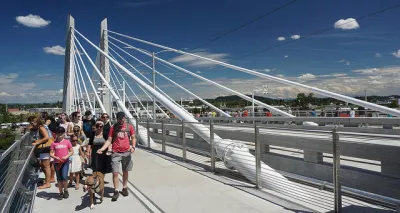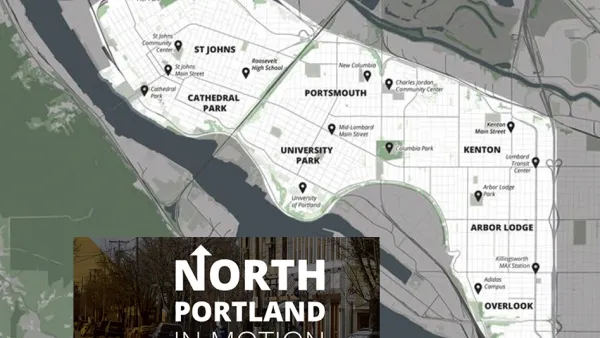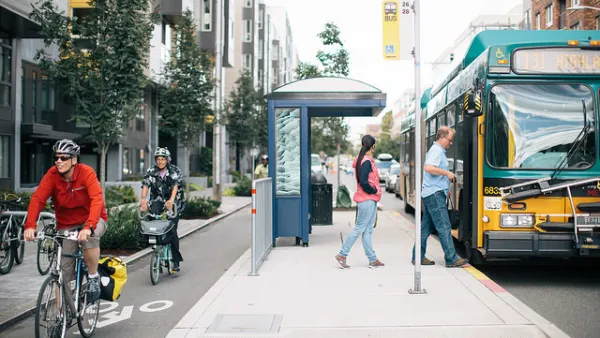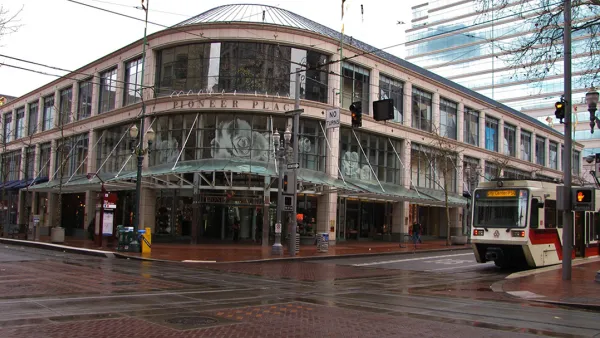The city of Portland will take the momentous step of estimating person trips, rather than car trips, when estimating the impacts of new developments. The decision is another step toward ending the systems of car-centric planning.

Jonathan Maus reports that the Portland City Council "unanimously passed an ordinance (PDF) allowing PBOT to use a methodology that uses 'person trips' – meaning trips made not just by people in cars and trucks but also foot, by bike and in transit vehicles."
According to Maus, "the methodology Portland currently uses is based on the Institute of Transportation Engineers (ITE) Trip Generation Manual [pdf] which [Brian Davis, a transportation analyst at Lancaster Engineering] calls, 'very car-oriented.'" That methodology often greatly overestimates the number of car trips a development will generate, resulting in development fees and infrastructure costs that greatly overcompensate for the needs of cars.
The change of methodology comes against the backdrop of a larger effort by the city to restructure its Transportation System Development Charge (TSDC). According to Maus, however, the implications of the decision to measure person trips could extend even further than the TSDC, when combined with the relatively new skepticism toward level of service as a measure of impact. Maus writes: "If we begin to quantify road users as people doing a variety of things — not just driving a car — than we can start looking at a multi-modal level of service and begin planning for the city we want."
FULL STORY: Beyond cars: City Council votes for ‘person trips’ to make better planning decisions

Analysis: Cybertruck Fatality Rate Far Exceeds That of Ford Pinto
The Tesla Cybertruck was recalled seven times last year.

National Parks Layoffs Will Cause Communities to Lose Billions
Thousands of essential park workers were laid off this week, just before the busy spring break season.

Retro-silient?: America’s First “Eco-burb,” The Woodlands Turns 50
A master-planned community north of Houston offers lessons on green infrastructure and resilient design, but falls short of its founder’s lofty affordability and walkability goals.

Test News Post 1
This is a summary

Analysis: Cybertruck Fatality Rate Far Exceeds That of Ford Pinto
The Tesla Cybertruck was recalled seven times last year.

Test News Headline 46
Test for the image on the front page.
Urban Design for Planners 1: Software Tools
This six-course series explores essential urban design concepts using open source software and equips planners with the tools they need to participate fully in the urban design process.
Planning for Universal Design
Learn the tools for implementing Universal Design in planning regulations.
EMC Planning Group, Inc.
Planetizen
Planetizen
Mpact (formerly Rail~Volution)
Great Falls Development Authority, Inc.
HUDs Office of Policy Development and Research
NYU Wagner Graduate School of Public Service




























